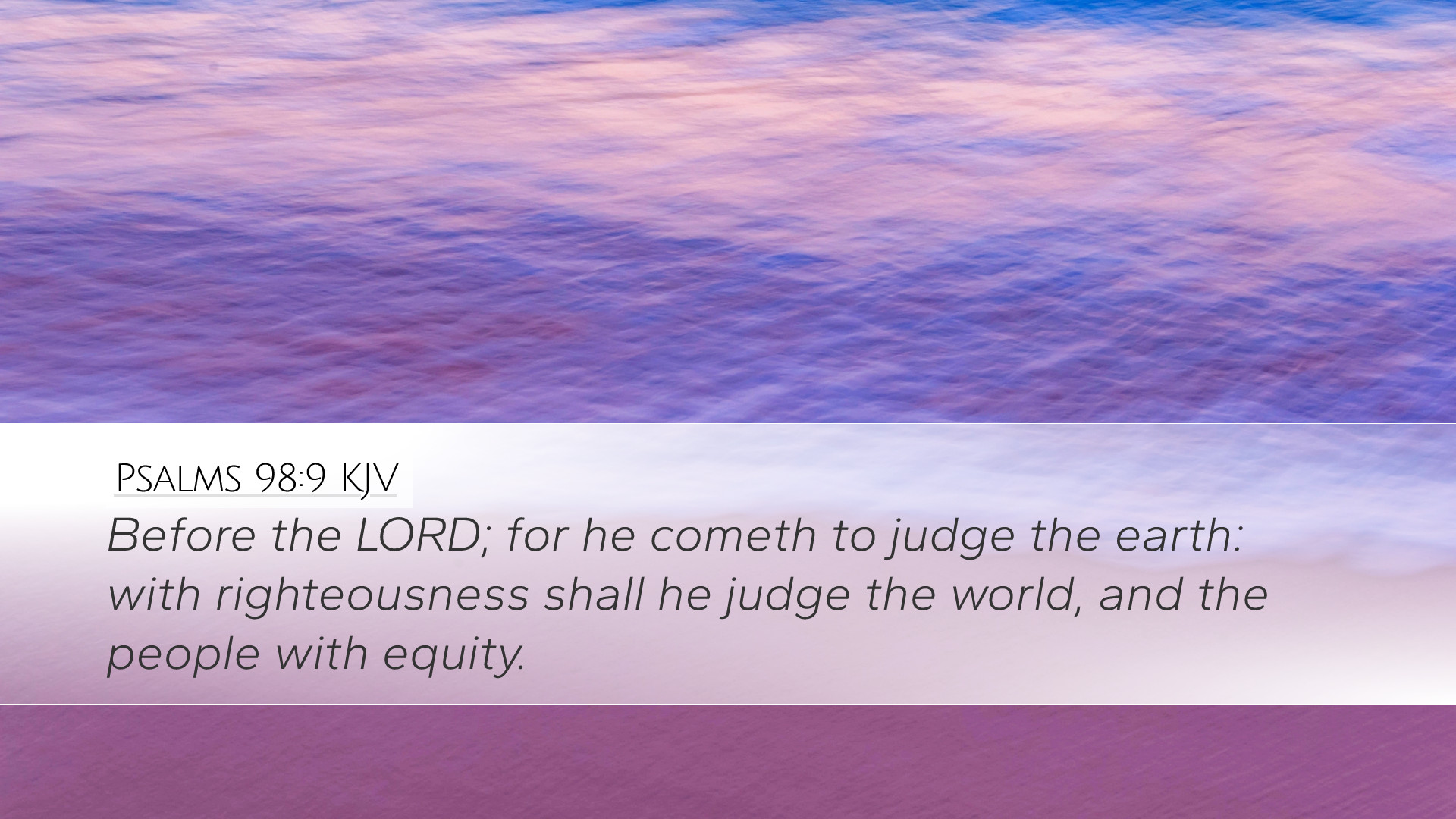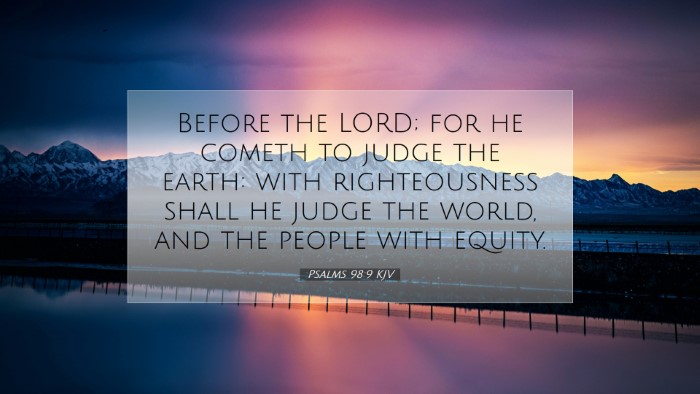Commentary on Psalms 98:9
Psalms 98:9 (KJV): "Before the LORD; for he cometh to judge the earth: with righteousness shall he judge the world, and the people with equity."
Introduction
This verse from Psalm 98 serves as a climactic conclusion to a psalm that celebrates the Lord's reign and His impending judgment. It encapsulates the themes of divine sovereignty, justice, and the hope of restoration for God’s people. A careful examination draws upon the insights offered by renowned commentators such as Matthew Henry, Albert Barnes, and Adam Clarke.
Exegesis and Insights
This verse embodies a powerful declaration of God's authority and righteousness in judgment. The phrase "for he cometh to judge the earth" emphasizes God's active role in providing justice and accountability for humanity.
1. Divine Coming to Judgment
Matthew Henry elaborates on the notion of the coming of the Lord, interpreting it as an imminent event both in the context of original psalmody and throughout the ages. Henry points out that this 'coming' signifies not only the establishment of justice but also brings a sense of urgency for believers to prepare themselves.
2. Righteousness in Judgment
Albert Barnes reinforces the concept of God’s righteousness, indicating that it is foundational to His character. He asserts that God's judgments are perfectly just—reflecting His nature as holy and fair. Barnes notes the contrast between divine judgment and human injustice, providing a reassurance to the faithful that God's equity is unwavering.
3. The Assurance of Equity
Adam Clarke expounds on the promise of equity in judgment, suggesting that it serves as a balm to those who feel oppressed and marginalized in their earthly experience. Clarke emphasizes the inclusivity of God’s judgment; it encompasses all people and offers hope that righteousness will ultimately prevail over wickedness.
Theological Implications
The themes present in Psalms 98:9 resonate deeply within Christian theology. This passage foreshadows the eschatological fulfillment where Christ, as the righteous judge, will return to assess humanity and establish His eternal kingdom.
1. Biblical Theology of Judgment
Drawing from the broader scriptural narrative, the judgment set forth in this psalm is reflective of a comprehensive biblical theme. God's judgment recurs from the prophets to the Revelation, affirming His engagement with creation and His ultimate authority over it.
2. Implications for Pastoral Ministry
Pastors are prompted by this passage to proclaim the need for repentance and readiness for God's imminent judgment. The assurance of justice must be a source of comfort to congregants facing injustices in their lives. Understanding the righteous character of God equips pastors to effectively minister to the spiritual and emotional needs of their flock.
3. Moral and Ethical Reflection
The discernment of divine righteousness necessitates that believers actively pursue justice and equity in their communities. The call to live righteously reflects the expectation of God’s behavior and the eventual judgment of the world.
Application
As we reflect on the implications of Psalms 98:9, it invites us to consider our individual and collective response to God's coming judgment.
1. Preparing for the Lord’s Return
- Engage in self-examination and spiritual disciplines to foster personal righteousness.
- Encourage congregants to remain vigilant in faith as they await the Lord’s return.
2. Advocacy for Justice
- Challenge injustices in society, reflecting God’s character through works of advocacy and mercy.
- Promote conversations about ethics that are shaped by the righteousness of God as described in scripture.
Conclusion
In conclusion, Psalms 98:9 serves as a rich source of theological reflection and practical application for believers. It not only asserts the righteous nature of God but stirs the hearts of believers to align their lives with His will, confident in His assured justice for all humanity.


